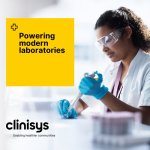
Sponsored • Laboratory information systems
Looking for new software solutions?
Are you looking for a new software solution for your laboratory? Laboratory information systems by Clinisys offer future-proof solutions you can rely on!

Are you looking for a new software solution for your laboratory? Laboratory information systems by Clinisys offer future-proof solutions you can rely on!
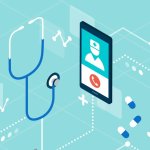
Interactive mobile apps have become ubiquitous in daily life. The Covid-19 pandemic has escalated the use of disease-specific monitoring apps. Mobile apps enabling cancer patients to self-manage their physical condition and symptoms can help them to evaluate toxic side effects of their treatments, offer artificial intelligence (AI)-generated recommendations to minimize them, and alert them to…
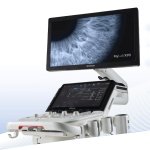
Italian biomedical and imaging company Esaote will be present at the ECR radiology congress in Vienna on March 1st - 5th, Expo X5 - Booth 517, to show its latest ultrasound, MRI and medical IT.
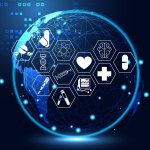
January 28 saw the celebration of the “Data Protection Day” as it is called in Europe, or respectively the “Privacy Day” as it is referred to outside of Europe. It marks the date on which the Council of Europe’s data protection convention, known as “Convention 108” was opened for signature back in 1981. According to the Council of Europe, it is the ‘only international,…

ECRI’s annual top ten technology hazard list alerts hospitals and healthcare providers of situations, products, and procedures they need to diligently monitor and/or take steps to improve. This non-profit technology Pennsylvania research firm has worked for over 50 years to make healthcare safer. The list reflects the organization’s collective judgment about the health technology risks that…

A new study is among the first to survey the current landscape of FHIR apps, providing a snapshot of how the standard is used to enable the flow of health information.
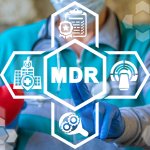
Medical imaging and healthcare IT company Esaote reports that it has completed the transition of its medical devices to comply with the new Medical Device Regulation (MDR).

The General Data Protection Regulation (GDPR), which came into force in 2018, has reinforced the European Union’s (EU) reputation of being comparatively strict regarding the protection of personal data within its member states. While the GDPR is generally considered a success, setting standards even outside its jurisdiction, critical voices are becoming louder.

OpenRad announced at RSNA the launch of its enterprise remote reporting platform, which enables cloud-based reporting, collaborative workflows across companies and advanced mobile fleet management.

On March 31st, 2022, a city-wide lockdown to curtail the spread of the Covid-19 virus in Shanghai, China, shuttered the GE Healthcare manufacturing facility that produces 80% of the global supply of iodinated contrast media agents iohexol (Omnipaque) and lodixanol (Visipaque). Although the plant was able to operate at 50% capacity by mid-May, the shutdown resulted in a substantial contrast media…
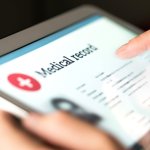
In Europe, Germany has been bringing up the rear in implementing the electronic patient record (EPR) for years. While the EMRAM score of German hospitals continues to be negligible – on the international as well as on the European level – there are signs of progress that give reason for hope.
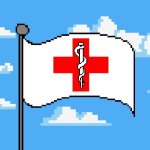
The Red Cross is intended to protect aid workers from attack during their missions. Can this symbol also be used for the digital world – and what opportunities and risks are associated with it?

Clinician and nurse burnout is a frequently discussed topic in the healthcare community in the wake of the Covid-19 pandemic. According to an analysis of the NHS published earlier this year, more than 400 workers in England have left the NHS to restore work-life balance within this past year. Burnout and cases of post-traumatic stress disorder after working through the Covid-19 pandemic are major…

At this year's Medica (Nov 14-17), the Health IT Forum offers a special focus on how health IT can contribute to more sustainability in healthcare, and on optimising treatment workflows.

It’s widely known that more than 70% of today’s medical decisions involve the results of laboratory tests, but the insights clinicians derive from these tests today may only be scratching the surface of their potential.

A new cloud-based ultrasound image sharing and reporting software will utilize image data to convey fetal growth projections and provide a platform for physician-to-physician and physician-to-patient communication.
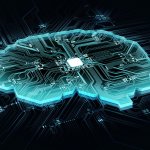
Machine learning and artificial intelligence (AI) have the potential to transform cancer treatment management worldwide. Their ability to rapidly analyse and integrate routinely acquired diverse data will improve the accuracy and effectiveness of precision medical treatments.
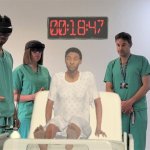
Cambridge University Hospitals and the Faculty of Education are helping to bring medical training using 'mixed reality' technology a step closer.
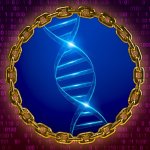
Blockchain is a digital technology that allows a secure and decentralized record of transactions. Now, researchers leveraged blockchain to give individuals control of their own genomes.
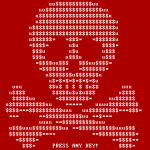
Russia's war against Ukraine is also playing out in cyberspace. In the process, clinics in Germany could also be caught in the digital crossfire, IT experts warn.

Medical imaging and radiotherapy treatment devices are essential lifesaving technologies. In an era when hospital information systems are increasingly being attacked by cybercriminals, just how protected and safe is this equipment?

The path from evidence-based research to clinical implementation is straightforward in theory but taxing in practice: Research groups must be coordinated, relevant published material identified, classified, and prepared, to shape findings into a comprehensive SOP for clinical use. To facilitate this complex process, Wolters Kluwer developed a new suite of applications, called Ovid Synthesis.
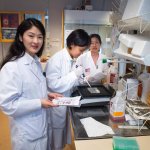
Researchers have developed advanced computer models, or “digital twins”, of diseases, with the goal of improving diagnosis and treatment.
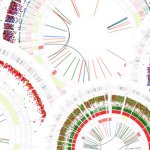
Computational approaches are being applied on enormous amounts of data from sequencing technologies to develop tools to help clinicians manage cancer more effectively.

The University Medical Centre (UMC) Utrecht, The Netherlands, collaborates with Fujitsu to realize their smart hospital initiative, using sensors, tags and IoT technology provided by the company.